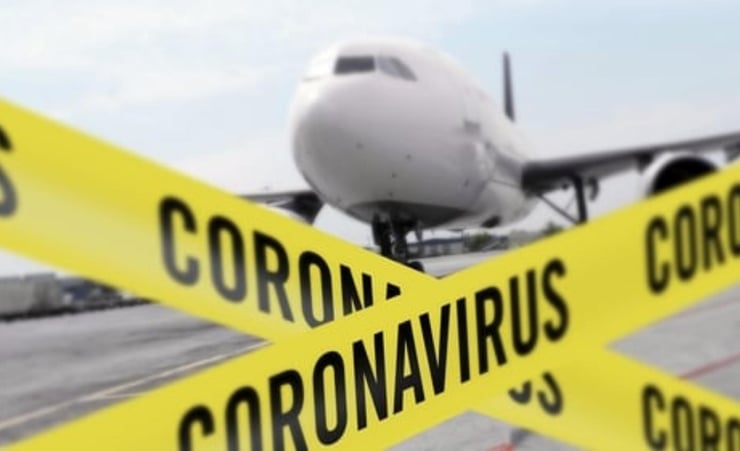Is New Zealand ready to remove the travel ban?

Travel bans have undoubtedly become a reality in the time of Covid that we all live in. New Zealand, in particular, is known globally for its strictest border control regime ever since the Pandemic began. However, at the recent tenth meeting of the International Health Regulations (2005) Emergency Committee, convened by the World Health Organisation (WHO) Director-General, regarding the Covid-19 Pandemic, WHO maintained that bans on international travel have proved ineffective, describing them as a "heavy burden on lives and livelihoods."
“Lift or ease international traffic bans as they do not provide added value and continue to contribute to the economic and social stress experienced by States Parties (States Parties are countries which have adhered to the UNESCO’s World Heritage Convention). The failure of travel restrictions introduced after the detection and reporting of the Omicron variant to limit the international spread of Omicron demonstrates the ineffectiveness of such measures over time. Blanket travel bans will not prevent the international spread, and they place a heavy burden on lives and livelihoods,” read the statement.
Reacting to this statement, a spokesperson from the Department of the Prime Minister and Cabinet (DPMC) Covid-19 Group said, "To slow the rapid spread of Omicron we have seen overseas, the government announced in December that non-MIQ travel for New Zealanders would be pushed out until at least the end of February 2022. We remain committed to our plan to Reconnect New Zealanders to the world, but we must do so in a safe and measured way. The Government will continue to update on these plans as further decisions are made by Ministers, based on the latest public health information and advice.”
Indian Weekender spoke to Covid-19 experts and travel professionals to find out if New Zealand should remove the travel ban and its strategy as we advance, especially when the fear of widespread Omicron transmission is looming over New Zealand.
‘We will be able to ease border restriction later this year.'
Otago University epidemiologist Professor Michael Baker thinks that NZ will be able to ease border restrictions later this year. He says, “The World Health Organisation has never supported travel bans throughout the Covid-19 Pandemic. However, countries in the Asia-Pacific region had widely used border controls to protect their populations, particularly during the first year of the Pandemic when we did not have effective Covid-19 vaccines available. These restrictions saved millions of lives.
“NZ’s strict border control was used as part of our elimination strategy that was very effective in dealing with Covid-19 during the first 18 months of the pandemic. This strategy saved at least 10,000 deaths. But with our high vaccination rate and the fact that the dominant Omicron variant causes less severe illness than Delta, New Zealand can change its strategy from elimination and suppression to mitigation. We can expect Omicron to enter this country at some stage over the next few weeks and cause rapid and extensive community transmission.
“Consequently, I believe we will be able to ease border restriction later this year once Omicron is widespread in New Zealand. At that stage, we will probably be able to switch from MIQ to home quarantine and potentially no quarantine requirements in the longer term. Let us maintain MIQ capacity for the foreseeable future to deal with the possibility of future dangerous Covid-19 variants that might emerge."
'Travel bans penalise some countries over others.'
Microbiologist Siouxsie Wiles believes travel bans do not do much to prevent the spread of Covid-19. She says, “This is not a clear-cut issue. Around the world, different countries are using different strategies to deal with the pandemic that range from the extremes of trying to have no Covid in the community to just letting people get infected. Travel bans have often been applied in a reactionary and racist way that penalizes some countries over others while not doing much to prevent the spread of Covid-19. This has been especially true in countries that have widespread community transmission.
“However, for those countries like NZ that have tried to minimise the introduction of the virus into the community, travel restrictions have been an important tool that has enabled us to live very different lives during the pandemic to people in many other countries. It is clear we still have to try to control Covid at the border, at least at the moment while we get everyone boosted and get our 5-11-year-olds vaccinated.”
'Travel bans are no longer effective once omicron is well established.'
Covid-19 data modeller Michael Plank expects that border restrictions will be progressively relaxed once Omicron is established in the NZ community.
He says, “Travel bans are no longer effective once Omicron is well established, as it is in places like the UK, EU, and the USA. NZ’s situation is very different. Our tight border controls (not a complete travel ban) are very effective at delaying the arrival of Omicron into NZ. The government is not intending to try and keep Omicron out forever, but as a short-term measure to buy time to prepare (boosters, vaccinating children, supply of tests, etc.), border controls are very effective."
Even travel experts are hopeful that Kiwis should travel globally without the restrictions soon.
“Look forward to the day travel is a regular part of Kiwis’ lives once again."House of Travel chief operating officer Brent Thomas maintained that international travel would take a long time to return to pre-Covid-19 levels. He says, “We are eager to help Kiwis see the world again when it is safe to do we. We continue to be guided by the Government’s requirements and look forward to the day travel is a regular part of New Zealander’s lives once again.”
“We could look at reopening border sooner with simple and logical safety measures in place.”
David Coombes, NZ managing director of Flight Centre Travel Group, believes that the government should consider more innovative ways to live with the virus and reopen our borders, including increased testing as the first line of defence. In November last year, Coombes had said, “Kiwis that have been hanging out to reconnect with loved ones overseas are well and truly prepared. As a company and as an industry, I can confirm we, too, are ready to go, and we're ready to go now. As an extra layer of protection, a rapid Covid-19 test could be taken upon entering New Zealand, and travellers could be required to stay at their chosen accommodation (not MIQ) until the test returns as negative.
“Our travel experts are ready to help Kiwis navigate this new reality of international travel, which will involve precautions and protocols across every point of the journey. I warmly our Prime Minister to discuss how we could look at reopening sooner, with simpler and more logical safety measures in place.”





